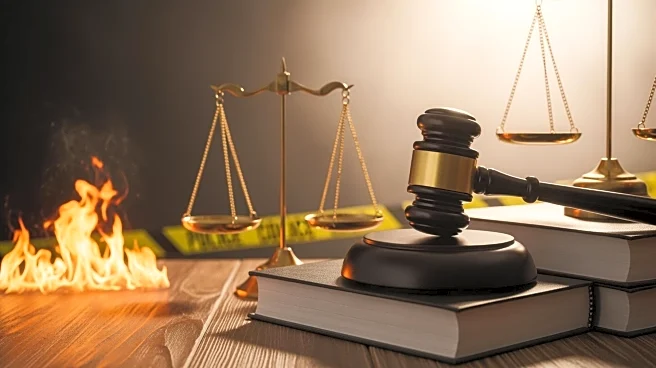What's Happening?
The Supreme Court has declined to hear an appeal from Alex Jones, maintaining the $1.4 billion judgment against him for defamation related to his claims about the Sandy Hook Elementary School shooting.
Jones, known for his conspiracy theories, had described the 2012 tragedy as a hoax involving crisis actors. The decision leaves in place the ruling that found Jones liable for defamation and emotional distress without a trial, as he failed to comply with court orders and provide evidence. The judgment includes a $964 million verdict and $473 million in punitive damages. Jones has filed for bankruptcy, and his assets are being liquidated to satisfy the judgment.
Why It's Important?
This decision underscores the legal consequences of spreading false information and conspiracy theories, particularly those that cause harm to victims and their families. The ruling serves as a significant precedent in defamation law, highlighting the judiciary's role in holding individuals accountable for damaging speech. It also reflects the broader societal impact of misinformation, especially in cases involving sensitive topics like school shootings. The financial implications for Jones and his company, Infowars, are substantial, potentially affecting his ability to continue operations and influence public discourse.
What's Next?
The liquidation of Jones' assets is ongoing, with proceedings moving to a Texas state court. A receiver has been appointed to oversee the sale of Infowars' assets, and some of Jones' personal property is also being sold as part of the bankruptcy case. The legal battles may continue as Jones appeals recent orders related to asset liquidation. The outcome could influence future cases involving defamation and misinformation, as well as the financial viability of entities that propagate conspiracy theories.
Beyond the Headlines
The case raises ethical questions about the balance between free speech and the responsibility to prevent harm through false narratives. It highlights the challenges in regulating speech that crosses into defamation, especially in the digital age where misinformation can spread rapidly. The ruling may prompt discussions on the need for stricter legal frameworks to address the consequences of harmful speech, while also considering the protection of free expression.










